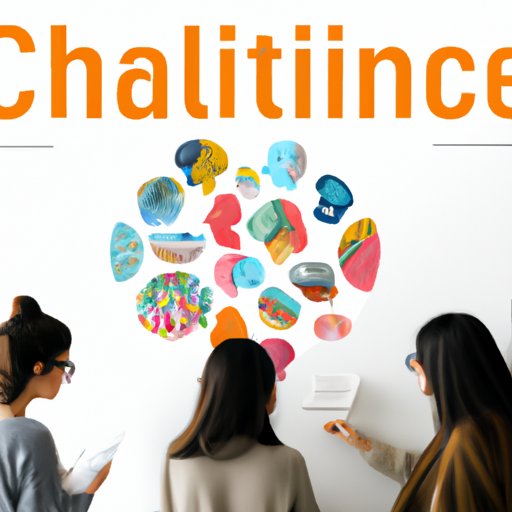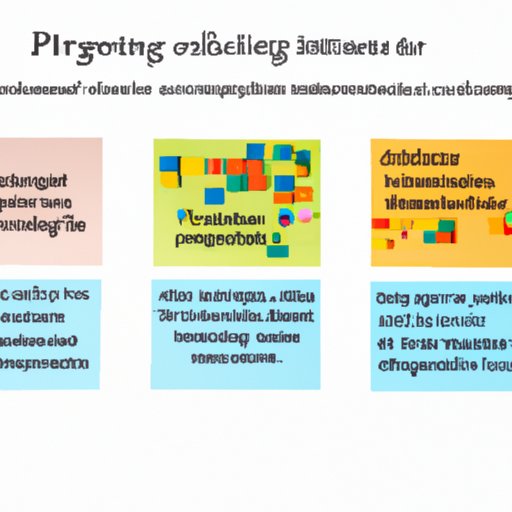Introduction
High cultural intelligence (CQ) is an important set of skills and traits that enable individuals to successfully interact with people from different cultures. It involves understanding and respecting cultural differences, being open to new perspectives, and being able to adapt one’s behavior in order to build meaningful connections with people from diverse backgrounds. CQ is increasingly recognized as an essential skill in today’s globalized world and can be developed through education, experience, and self-reflection.

Exploring the Traits of High Cultural Intelligence
High CQ involves a number of key traits, including empathy, open-mindedness, respect for diversity, flexibility, and self-awareness. Each of these traits plays an important role in enabling individuals to engage with people from different cultures in a positive and productive manner.
Empathy
Empathy is the ability to understand and share the feelings of another person. In the context of CQ, empathy involves being able to recognize and appreciate the unique experiences, beliefs, and values of other cultures. It also involves being able to put oneself in someone else’s shoes, which helps build trust and mutual understanding.
Open-Mindedness
Open-mindedness is the willingness to consider and accept new ideas and perspectives that are different from one’s own. This trait is particularly important when interacting with people from different cultures, as it allows individuals to better appreciate the richness and complexity of different worldviews. Open-mindedness enables individuals to move beyond their own biases and see things from another person’s point of view.
Respect for Diversity
Respect for diversity is the recognition and appreciation of the unique qualities and characteristics of each individual, no matter their background or culture. This trait is essential for building meaningful connections and relationships with people from different cultures. Respect for diversity involves recognizing the inherent value of all people and treating them with dignity and kindness.
Flexibility
Flexibility is the ability to adjust one’s behavior in order to accommodate different cultural norms and expectations. This trait enables individuals to navigate unfamiliar situations and environments with ease and confidence. Flexibility also involves being willing to compromise and negotiate in order to find common ground with people from different cultures.
Self-Awareness
Self-awareness is the ability to recognize and understand one’s own thoughts, feelings, and behaviors. In the context of CQ, self-awareness involves understanding one’s own cultural experiences and biases, and recognizing how they may impact one’s interactions with people from different cultures. Self-awareness is essential for developing meaningful and respectful relationships with people from different backgrounds.
Analyzing the Benefits of High Cultural Intelligence
Developing high CQ has numerous benefits, both personally and professionally. These include improved intercultural relationships, enhanced communication skills, and increased opportunities.
Improved Intercultural Relationships
High CQ enables individuals to develop meaningful and respectful relationships with people from different cultures. This is because having high CQ requires understanding and appreciating the unique experiences, beliefs, and values of other cultures. As a result, individuals with high CQ are better able to foster mutual understanding, build trust, and manage misunderstandings in intercultural relationships.
Enhanced Communication Skills
High CQ also enables individuals to communicate more effectively with people from different cultures. This is because having high CQ involves an understanding of different cultural norms and expectations, which enables individuals to adjust their behavior accordingly. As a result, individuals with high CQ are better able to bridge cultural divides and effectively convey their messages in intercultural contexts.
Increased Opportunities
Finally, high CQ can lead to increased opportunities, both personally and professionally. This is because having high CQ demonstrates an ability to work effectively with people from different cultures, which is highly valued in today’s globalized world. As a result, individuals with high CQ are often sought after for their unique skills and abilities.

Investigating the Impact of High Cultural Intelligence on Intercultural Relationships
High CQ can have a significant impact on intercultural relationships. Specifically, it can help to develop mutual understanding, build trust, and manage misunderstandings.
Developing Mutual Understanding
Having high CQ enables individuals to better understand and appreciate the unique experiences, beliefs, and values of people from different cultures. This helps to create a sense of connection and common ground between individuals from different backgrounds, which can lead to greater mutual understanding.
Building Trust
High CQ also enables individuals to build trust with people from different cultures. This is because having high CQ involves being able to empathize with others and recognize their perspectives, which helps to create a safe and secure environment for meaningful conversations and interactions.
Managing Misunderstandings
Finally, high CQ can help to manage misunderstandings in intercultural relationships. This is because having high CQ involves an understanding of different cultural norms and expectations, which enables individuals to adjust their behavior accordingly. As a result, individuals with high CQ are better able to bridge cultural divides and resolve conflicts in a respectful and effective manner.
Understanding the Role of Self-Awareness in Achieving High Cultural Intelligence
Self-awareness plays an important role in achieving high CQ. Specifically, it involves recognizing one’s own biases and cultural experiences, and understanding how they may impact one’s interactions with people from different cultures. This helps individuals to reflect on their own behavior and make adjustments where necessary in order to build meaningful connections with people from different backgrounds.
Recognizing Your Own Biases
Self-awareness involves recognizing one’s own biases and prejudices, and understanding how they may influence one’s interactions with people from different cultures. This helps individuals to be aware of their own preconceived notions and avoid making assumptions about others based on their own cultural experiences.
Examining Your Cultural Experiences
Self-awareness also involves examining one’s own cultural experiences and reflecting on how they may shape one’s view of the world. This helps individuals to better understand their own perspective and recognize how it may differ from the perspectives of others.
Understanding Your Behaviors
Finally, self-awareness involves understanding one’s own behaviors and how they may be perceived by people from different cultures. This helps individuals to adjust their behavior accordingly in order to create meaningful connections with people from different backgrounds.

Describing the Process of Developing High Cultural Intelligence
Developing high CQ is a process that involves education, experience, and self-reflection. Specifically, it involves adopting a growth mindset, learning about different cultures, and practicing effective communication.
Adopting a Growth Mindset
The first step in developing high CQ is to adopt a growth mindset. This means recognizing that CQ is a set of skills that can be developed and improved over time. Adopting a growth mindset is essential for fostering a sense of openness and curiosity towards other cultures and beliefs, which is essential for developing meaningful relationships with people from different backgrounds.
Learning about Different Cultures
The second step in developing high CQ is to learn about different cultures. This can involve reading books, watching films, attending cultural events, and engaging in cross-cultural dialogue. Learning about different cultures helps to increase one’s understanding and appreciation of different worldviews, which is essential for interacting effectively with people from different backgrounds.
Practicing Effective Communication
The third and final step in developing high CQ is to practice effective communication. This involves being mindful of one’s body language, tone of voice, and choice of words, and adjusting one’s behavior in order to create a safe and respectful environment for conversations and interactions. Practicing effective communication helps to bridge cultural divides and foster mutual understanding.
Identifying Strategies for Enhancing Cultural Intelligence
There are a number of strategies that individuals can use to enhance their CQ, including participating in cultural events, engaging in cross-cultural dialogue, and seeking out mentors. Each of these strategies can help to increase one’s understanding and appreciation of different cultures, which is essential for developing meaningful relationships with people from different backgrounds.
Participating in Cultural Events
Participating in cultural events is a great way to gain insight into different cultures and worldviews. This could involve attending festivals, visiting museums, or watching performances. Participating in cultural events can help to increase one’s knowledge and appreciation of different cultures, which is essential for developing high CQ.
Engaging in Cross-Cultural Dialogue
Engaging in cross-cultural dialogue is another great way to enhance one’s CQ. This could involve having conversations with people from different cultures, joining social media groups, or attending workshops. Engaging in cross-cultural dialogue helps to bridge cultural divides and foster mutual understanding, which is essential for developing meaningful relationships with people from different backgrounds.
Seeking Out Mentors
Finally, seeking out mentors is a great way to enhance one’s CQ. This could involve finding a mentor from a different culture or country, or simply talking to someone who has more experience with different cultures. Having a mentor can provide valuable guidance and support in navigating unfamiliar cultural contexts, which is essential for developing high CQ.
Conclusion
High cultural intelligence is an essential set of skills and traits that enable individuals to successfully interact with people from different cultures. It involves understanding and respecting cultural differences, being open to new perspectives, and being able to adapt one’s behavior in order to build meaningful connections with people from diverse backgrounds. Developing high CQ has numerous benefits, including improved intercultural relationships, enhanced communication skills, and increased opportunities. It is an ongoing process that involves education, experience, and self-reflection, and there are several strategies that individuals can use to enhance their CQ, such as participating in cultural events, engaging in cross-cultural dialogue, and seeking out mentors.
(Note: Is this article not meeting your expectations? Do you have knowledge or insights to share? Unlock new opportunities and expand your reach by joining our authors team. Click Registration to join us and share your expertise with our readers.)
